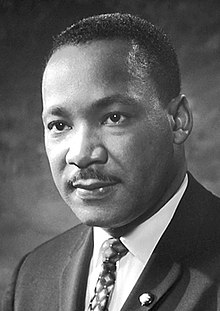Today, on the Feast Day of Martin Luther King, Jr., the Old Testament reading is from Exodus. God is speaking to Moses through the burning bush, and says, “I have observed the misery of my people who are in Egypt; I have heard their cry on account of their taskmasters. Indeed, I know their sufferings. . . . The cry of the Israelites has now come to me; I have also seen how the Egyptians oppress them. So come, I will send you to Pharaoh to bring my people, the Israelites, out of Egypt.”
Moses, an Israelite, knows Pharaoh’s ways intimately because he was raised in Pharaoh’s household. He is the best man to speak on behalf of his captive people. He was a member of the ruling class, with all its privilege. He lived in the dual reality of being a Jew and an Egyptian until one day when he witnessed a fellow Egyptian beating a fellow Israelite and, in a fit of passion, murdered the man. Then he ran away – far away.
When he was a shepherd tending his father-in-law’s flock out in the vast lands beyond the Egyptian empire, did images of cruelty and suffering plague his dreams? Did he regret leaving his people in bondage? When God called to him from the bush, was the mission he was given a complete surprise?
We only know that God talked him into going back. God said, in essence, “you can run, but you cannot hide.” And so Moses became an emissary to Pharaoh. And he was finally able to lead his people out of their captivity.
In his famous Letter from Birmingham Jail, Dr. King, who was in the midst of the campaign to bring enough public attention to racist practices in that city that things might change, wrote a challenge to his white allies to act more decisively. He said:
“I have almost reached the regrettable conclusion that the Negro’s great stumbling block in his stride toward freedom is not the White Citizen’s Councilor or the Ku Klux Klanner, but the white moderate, who is more devoted to “order” than to justice; who prefers a negative peace which is the absence of tension to a positive peace which is the presence of justice; who constantly says: ‘I agree with you in the goal you seek, but I cannot agree with your methods of direct action’; who paternalistic-ally believes he can set the timetable for another man’s freedom; who lives by a mythical concept of time and who constantly advises the Negro to wait for a ‘more convenient season.'”
Most of us are bothered by racism – by the abuse, the systemic violence, the destruction of individual lives and community viability that is part of the underbelly of U.S. attitudes, values and practices. But quite a few of us have metaphorically taken to the hills, hoping to avoid the conflict. We don’t like to think about it. And if we aren’t forced to, we don’t. And, well, that’s a sign of our privilege, isn’t it.
Are we longing for peace above justice? Are we the great stumbling block in the stride toward freedom of oppressed people among us today?
There may be a bush near you that is burning but not consumed – a fire in your heart – a conflagration of the soul. Take off your shoes; you are on holy ground. What is God calling out to you? What sort of mission do you know in your deepest self is yours?

